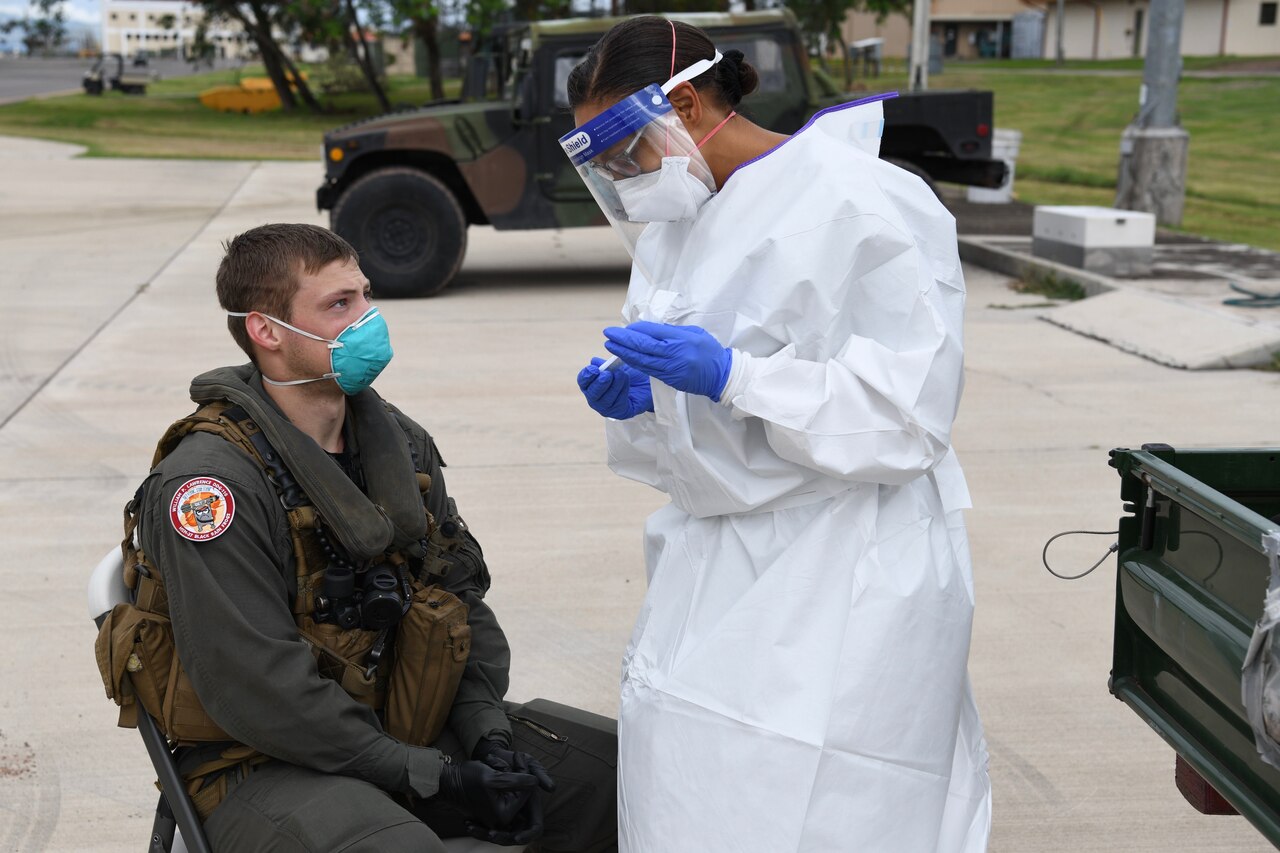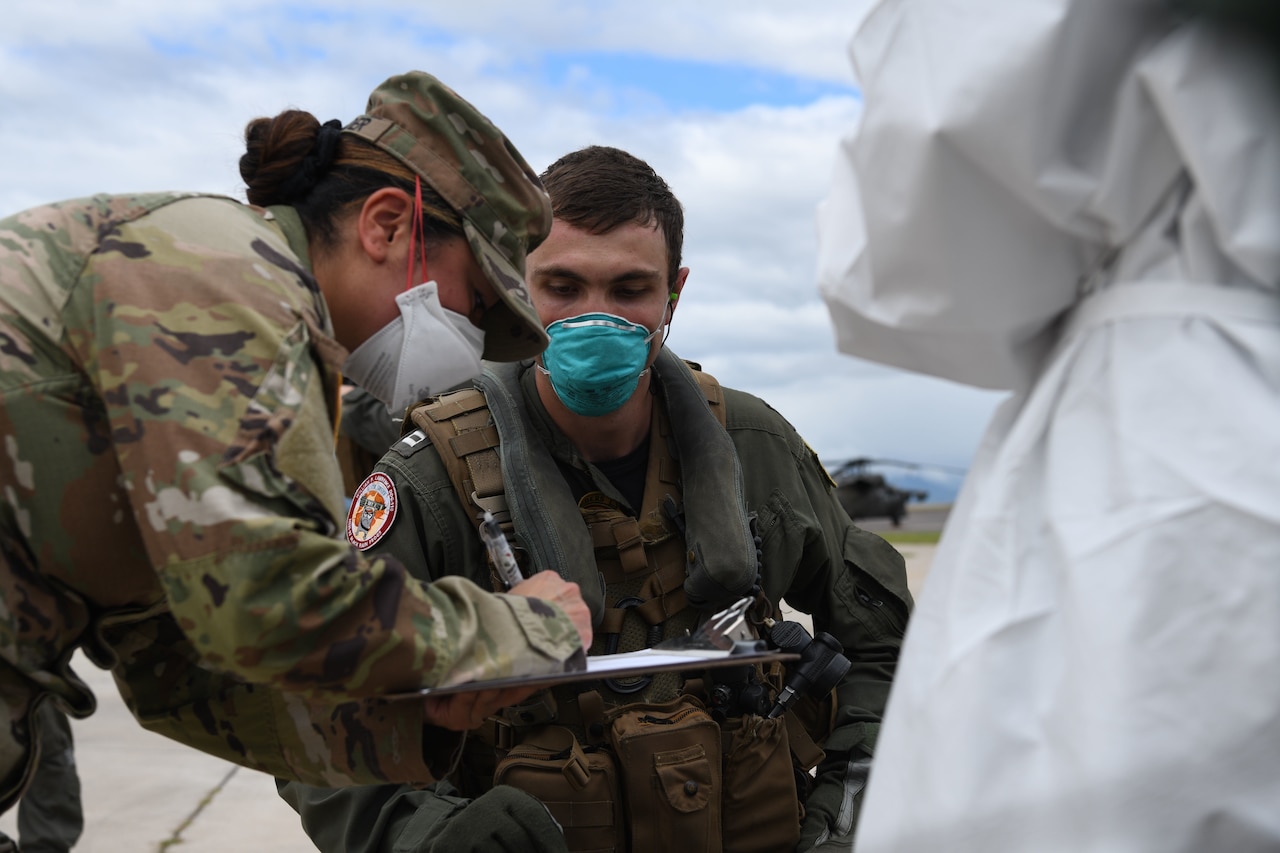Dec. 2, 2020 | , Joint Task Force Bravo
Juggling in itself is no easy feat, but for medics juggling health protection requirements in the aftermath of two back-to-back hurricanes, all while ensuring the personnel assigned to Soto Cano Air Base remain safe while operating in a pandemic environment, one can easily assume something would fail.
However, through careful planning led by the COVID-19 response team and strict adherence to the guidelines by all on Soto Cano Air Base, the COVID-19 mitigation efforts have remained effective and ensure the small base continues to meet its mission requirements.

"The combat support hospital staff provide multiple services, but one of the key things we do is conduct COVID-19 tests, which protect the people both on and off base," said Army Lt. Col. Philip O'Brien, Joint Task Force-Bravo deputy surgeon.
The staff of 67 military members provides typical preventative medicine such as basic medical, dental and pharmaceutical care, plus vet, clinic, supply and logistics; however, on top of the normal requirements, the unit is also responsible for leading the effort to mitigate the spread of COVID-19 on base and with personnel supporting missions off base.
As a part of the reintegration process for those individuals supporting off-base missions, it's critical that testing takes place upon their return to ensure they did not contract the virus while out or spread it to others.
An immediate measure available is the administration of the polymerase chain reaction (PCR) test, considered to be the most accurate test available, which detects the virus on the molecular level and is the gold standard for testing.
Sometimes the test is conducted by the COVID-19 response team on the flight line.
"We do the tests on the flight line to avoid unnecessary movement of people to minimize contamination," said Army Sgt. 1st Class Marjorie Schrader, the hospital's first sergeant. "We also refrain from bringing possible COVID-19 positive individuals into the clinic as it can impact our ability to provide other essential care," she said.

As of Nov. 28, 2020, the staff has conducted 1,213 tests, out of which 17 returned positive. Those who test positive go into isolation for 10 days, with checkups on their status two to three times a day, Schrader explained. They can be released on the 10th day as long as they remain asymptomatic, because they're no longer contagious at that point, which is based on Centers for Disease Control and Prevention guidelines.
Additionally, the COVID-19 response team extends the PCR test to Honduran base employees, known as foreign service nationals.
"We test those who work closely with our service members on our surveillance testing to ensure their safety," Schrader said. "If they become positive, we conduct a thorough trace and escort them as well as their close contacts off base with instructions for strict isolation at home."
Infected foreign service nationals, and the people identified as close contacts, are put on a no access list and not allowed back on base until their 10 days have passed without symptoms.
"The testing is one aspect, but the safety measures we have in place here such as the social distancing, wearing of masks and washing hands is working here, " O'Brien said. "And I'm proud of that. What the virus does hasn't changed, but our behavior around it has. If we do the right things consistently, we can manage it."








No comments:
Post a Comment